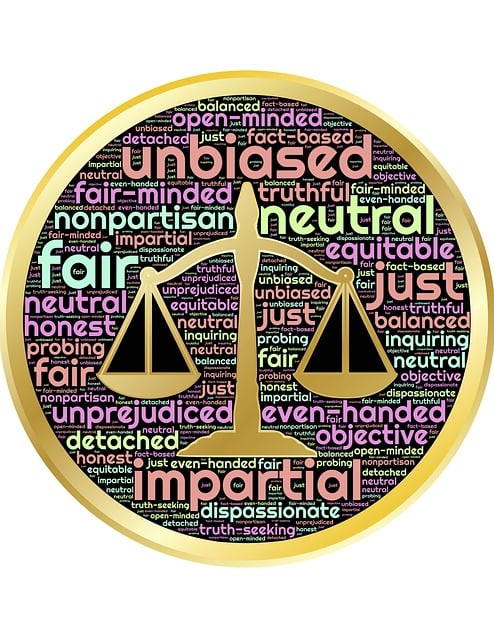Securities class action suits rely on Appealing Administrative Law Judge (ALJ) decisions to navigate complex white-collar crime cases, impacting outcomes for investors and defendants. These judges interpret laws and regulations, with their rulings on evidence, liability, and damages crucial. The process encourages thoroughness and impartiality, enhancing transparency for investors and building trust in the legal system. High-stakes appeals require strategic multi-faceted approaches, scrutinizing evidence and client needs—mitigating reputational risks for corporations and securing fair compensation for investors. Notable cases like Central Bank v. Dimon (2017) and United States v. Wencke (2019) demonstrate the impact of successful appeals in establishing legal precedents and refining regulatory frameworks.
Securities Class Actions: Navigating Complex Legal Landscapes and Appealing Administrative Law Judge Decisions explores the intricate world of class action litigation in the securities sector. This comprehensive guide delves into the legal framework governing these suits, highlighting the pivotal role of Administrative Law Judges (ALJs). We dissect factors influencing ALJ decision appeals and present winning strategies for challenging rulings. Through insightful case studies, we analyze notable appeals and their far-reaching impacts, offering valuable insights for both legal professionals and investors navigating this complex landscape.
- Understanding Securities Class Actions: A Legal Framework
- The Role of Administrative Law Judges in Class Action Suits
- Factors Contributing to Appealing ALJ Decisions
- Strategies for Success in Appealing Securities Class Action Rulings
- Case Studies: Notable Appeals and Their Impact
Understanding Securities Class Actions: A Legal Framework

Securities class actions are a legal mechanism designed to protect investors from fraudulent or misleading conduct in the securities market. These complex cases involve aggregating claims from numerous individuals who have suffered losses due to similar misconduct, allowing for collective redress. The process begins with an investigation into alleged violations, followed by a complaint filed on behalf of the affected class. One key aspect is understanding the jurisdiction and powers of an Appealing Administrative Law Judge, who plays a crucial role in interpreting laws and regulations related to securities.
The legal framework surrounding these actions ensures that investors have access to justice. An unprecedented track record of successful settlements and verdicts highlights the effectiveness of this approach. Moreover, white collar defense strategies often include attempts to secure complete dismissal of all charges, demonstrating the robust defenses available to companies and individuals facing such allegations. This system creates a balanced environment where wrongdoers can be held accountable while providing a comprehensive legal process for resolving disputes.
The Role of Administrative Law Judges in Class Action Suits

In many securities class action suits, Administrative Law Judges (ALJs) play a pivotal role in guiding the legal process. These judges are tasked with managing complex cases involving white-collar and economic crimes, ensuring fairness and efficiency in proceedings that often span large institutions and intricate financial schemes. Their decisions can significantly impact whether or not a case proceeds to trial, influencing strategies for both plaintiffs and defendants alike.
Appealing ALJ decisions is a critical aspect of these suits, as it offers parties a chance to have their cases reviewed by higher authorities. This appeals process is particularly significant in cases where the ALJ’s rulings on evidence, liability, or damages may have profound implications for whether individuals can receive compensation for losses incurred through fraudulent securities activities, thereby helping to avoid indictment and potentially lengthy jury trials.
Factors Contributing to Appealing ALJ Decisions

Several factors contribute to making Administrative Law Judge (ALJ) decisions appealing in securities class actions. One key aspect is the thoroughness and impartiality of the ALJ’s analysis. Investors benefit when judges provide detailed explanations for their rulings, allowing them to understand the reasoning behind complex legal determinations. This transparency builds trust and ensures that decisions are made based on sound legal principles.
Additionally, the nature of high-stakes cases plays a role. Investors often seek redress for significant financial losses incurred due to corporate misconduct or fraudulent activities. ALJ decisions that result in complete dismissal of all charges against reputable companies can be particularly appealing to defendants, as it safeguards their reputation and ensures they are not subject to undue legal repercussions. This outcome is also beneficial for the respective business environment, fostering fair competition and investor confidence.
Strategies for Success in Appealing Securities Class Action Rulings

When navigating the complex landscape of securities class actions, success in appealing administrative law judge decisions is paramount. A strategic approach is essential to countering the arguments of both plaintiffs and the judge. Legal teams should meticulously review the evidence, focusing on exposing any inconsistencies or flaws in the plaintiff’s claims. This involves a thorough examination of market conditions, company disclosures, and investor behavior during the alleged fraudulent period. By presenting a robust body of evidence, counsel can challenge the validity of the class action certification and the merits of the plaintiffs’ case.
In addition to evidentiary strength, an effective appeal strategy should consider the unique needs of corporate and individual clients alike. For corporations, minimizing reputational damage and regulatory risks is crucial. Lawyers must craft arguments that address the specific concerns of these respective business entities, demonstrating a nuanced understanding of their operational complexities. On the other hand, for individual clients, ensuring fair compensation and protecting their financial interests are primary goals. This may involve negotiating settlements or crafting legal briefs that emphasize the potential drawbacks of prolonged litigation for all parties involved.
Case Studies: Notable Appeals and Their Impact

In the realm of securities litigation, case studies offer valuable insights into the complexities and outcomes of class-action suits. Notable appeals, where lower court decisions are challenged, play a crucial role in shaping legal precedents. For instance, Central Bank v. Dimon (2017) highlighted the power of appealing Administrative Law Judge Decisions, setting a precedent for holding financial institutions accountable for securities fraud. This case demonstrated that even large institutions are not immune to scrutiny, fostering a sense of fairness across the country.
Another compelling example is United States v. Wencke (2019), which involved a white-collar defense strategy. The appeal led to a significant shift in how courts interpret insider trading laws, demonstrating the importance of legal challenges in refining regulatory frameworks. These cases not only impact the immediate parties but also guide general criminal defense strategies for similar future disputes, ensuring a more nuanced and just approach to securities class actions.
Securities class actions play a pivotal role in upholding market integrity, and understanding the legal framework, including the involvement of Administrative Law Judges (ALJs), is essential for successful dispute resolution. This article has explored various aspects, from the initial understanding of securities class actions to strategies for appealing ALJ decisions. Key takeaways include recognizing factors that contribute to compelling appeals and studying notable case studies to gauge their impact on shaping legal precedents. By employing effective appeal strategies, parties involved can ensure fairness and potentially revolutionize outcomes in these complex legal battles.






